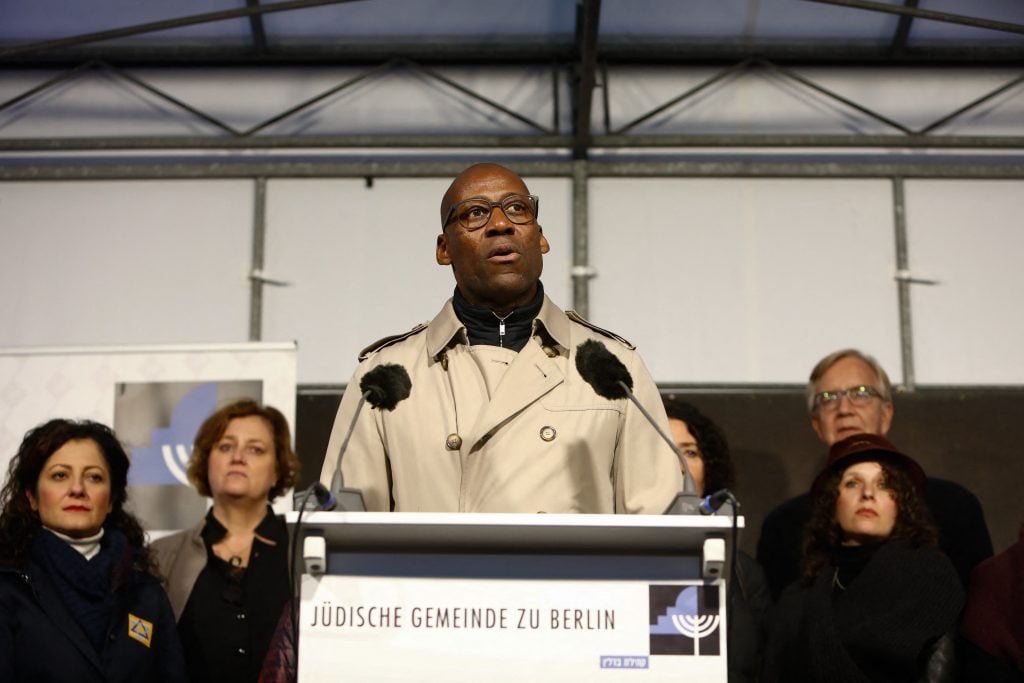Law & Politics
Following Outcry, Berlin’s Culture Ministry Scraps a Controversial ‘Anti-Discrimination’ Requirement for Art Grants
The move came after thousands of culture workers criticized the measure as restriction on freedom of speech.

The move came after thousands of culture workers criticized the measure as restriction on freedom of speech.

Vivienne Chow

The Berlin state has reversed a newly introduced and controversial antisemitism clause from its arts funding applications, citing legal concerns.
The decision, announced on Monday January 22, came in the wake of protests from culture workers—including artists Wolfgang Tillmans and Candice Breitz. Dissenters demanded the withdrawal of the measure, which some called an attack on artistic freedom.
“Due to legal concerns that the anti-discrimination clause is not legally secure in this form, it will no longer be used in grant notifications,” the Berlin state’s statement read.
But this may be just a pause rather than a scrapping of the measure. Joe Chialo, senator for Culture and Social Cohesion, noted that he “will continue to work for the non-discriminatory development of Berlin culture.” The Senate Department for Culture and Social Cohesion noted that it will further its conversation with institutions and cultural workers in the coming months on the issue “to reach a uniform regulation.”
“I have to take seriously the legal and critical voices that saw the introduced clause as a restriction on artistic freedom,” he said in a statement. “We need the debates now more than ever and there is no doubt in my mind that it is time to act. I encourage discourse and build on non-partisan cooperation.”
Last month, the Senate Department for Culture and Social Cohesion introduced an antisemitism clause to its arts funding criteria, making grants available only to those who agree with the state’s definition of antisemitism adopted from the one drafted by the International Holocaust Remembrance Alliance (IHRA) and adding the German government’s extension.
Some have found the definition problematic. The move by the Senate saw backlash from artists and cultural workers, with nearly 6,000 signing onto a petition demanding the state to scrap the measure. The petition’s authors said the IHRA’s “controversial” definition of antisemitism, though not legally binding, could endanger artistic freedom and freedom of expression as events or projects critical of Israel could be easily canceled with this new “administrative tool.”
Since the attack on October 7 and Israel’s military response, artists have had their exhibitions or funding canceled in Germany due to their support for Palestine or statements about the war that were deemed antisemitic.
More Trending Stories:
Art Dealers Christina and Emmanuel Di Donna on Their Special Holiday Rituals
Stefanie Heinze Paints Richly Ambiguous Worlds. Collectors Are Obsessed
Inspector Schachter Uncovers Allegations Regarding the Latest Art World Scandal—And It’s a Doozy
Archaeologists Call Foul on the Purported Discovery of a 27,000-Year-Old Pyramid
The Sprawling Legal Dispute Between Yves Bouvier and Dmitry Rybolovlev Is Finally Over